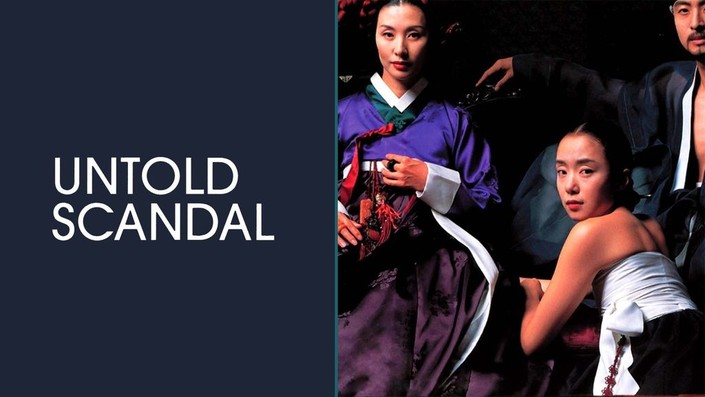allureaestheticsazflagstaff.com – “Untold Scandal” (Korean: 스캔들 – 조선 남녀 상열지사; Seukeandeul – Joseon Namnyeo Sangyeoljisa), released in 2003, is a South Korean erotic period drama film directed by E J-yong. It is a loose adaptation of the 1782 French epistolary novel “Les Liaisons dangereuses” (Dangerous Liaisons) by Pierre Choderlos de Laclos, transposing the setting to 18th-century Joseon Korea. The film explores themes of love, lust, manipulation, and the corrupting influence of power within the aristocratic circles of the era.
Transposing a Classic to Joseon Korea
“Untold Scandal” cleverly adapts the intricate web of seduction and betrayal from the original novel to the distinct social and cultural context of Joseon Korea. The rigid social hierarchy, Confucian values, and emphasis on reputation within Joseon society amplify the consequences of the characters’ actions and add a unique layer of complexity to the narrative.
Lady Cho and Jo-won: Masters of Manipulation
The film’s central characters are Lady Cho (Lee Mi-sook), a cunning and powerful widow, and her younger cousin, Jo-won (Bae Yong-joon), a notorious playboy. They engage in a dangerous game of seduction and manipulation, using others as pawns in their own amusement. Lady Cho proposes a challenge to Jo-won: to seduce the virtuous Lady Sook (Jeon Do-yeon), a devout Catholic woman known for her chastity.
Lady Sook: The Target of Seduction
Lady Sook becomes the target of Jo-won’s carefully orchestrated seduction. He feigns genuine interest in her, employing charm and flattery to win her trust. However, as he gets closer to Lady Sook, he begins to experience genuine feelings for her, complicating his carefully laid plans.
A Web of Deception and Betrayal
As the game of seduction unfolds, the characters become entangled in a web of deception and betrayal. Secrets are revealed, reputations are ruined, and the consequences of their actions become increasingly devastating. The film explores the destructive nature of manipulation and the emotional toll it takes on both the perpetrators and the victims.
Themes of Love, Lust, and Social Constraint
“Untold Scandal” explores several compelling themes:
- Love and Lust: The film delves into the complex interplay between love and lust, questioning the true nature of human desire and the motivations behind romantic relationships.
- Social Constraint: The strict social conventions of Joseon Korea play a significant role in shaping the characters’ actions and choices. The fear of social ostracism and the importance of maintaining a respectable reputation drive much of the drama.
- The Corrupting Influence of Power: The film also examines the corrupting influence of power, particularly within the aristocratic circles depicted. The characters’ privileged status allows them to engage in reckless behavior with little fear of consequence, until their actions spiral out of control.
Stellar Performances and Visual Grandeur
The film boasts stellar performances from its lead actors. Lee Mi-sook delivers a captivating portrayal of the cunning Lady Cho, while Bae Yong-joon sheds his “nice guy” image to convincingly portray the charming yet manipulative Jo-won. Jeon Do-yeon delivers a nuanced performance as the virtuous Lady Sook, capturing her vulnerability and inner strength. The film’s visual grandeur, with its lavish costumes and beautiful scenery, further enhances the viewing experience.
A Controversial and Critically Acclaimed Film
“Untold Scandal” generated controversy upon its release due to its explicit sexual content and exploration of taboo subjects within the context of a historical setting. However, the film also received critical acclaim for its compelling narrative, strong performances, and insightful exploration of social and cultural themes.
A Lasting Impact on Korean Cinema
“Untold Scandal” remains a significant film in Korean cinema, known for its bold adaptation of a classic novel, its exploration of complex themes, and its visually stunning presentation. The film’s success contributed to the growing popularity of Korean period dramas and helped to establish Korean cinema on the international stage. Its exploration of human desire, social constraints, and the corrupting influence of power continues to resonate with audiences, making it a memorable and thought-provoking cinematic experience.
